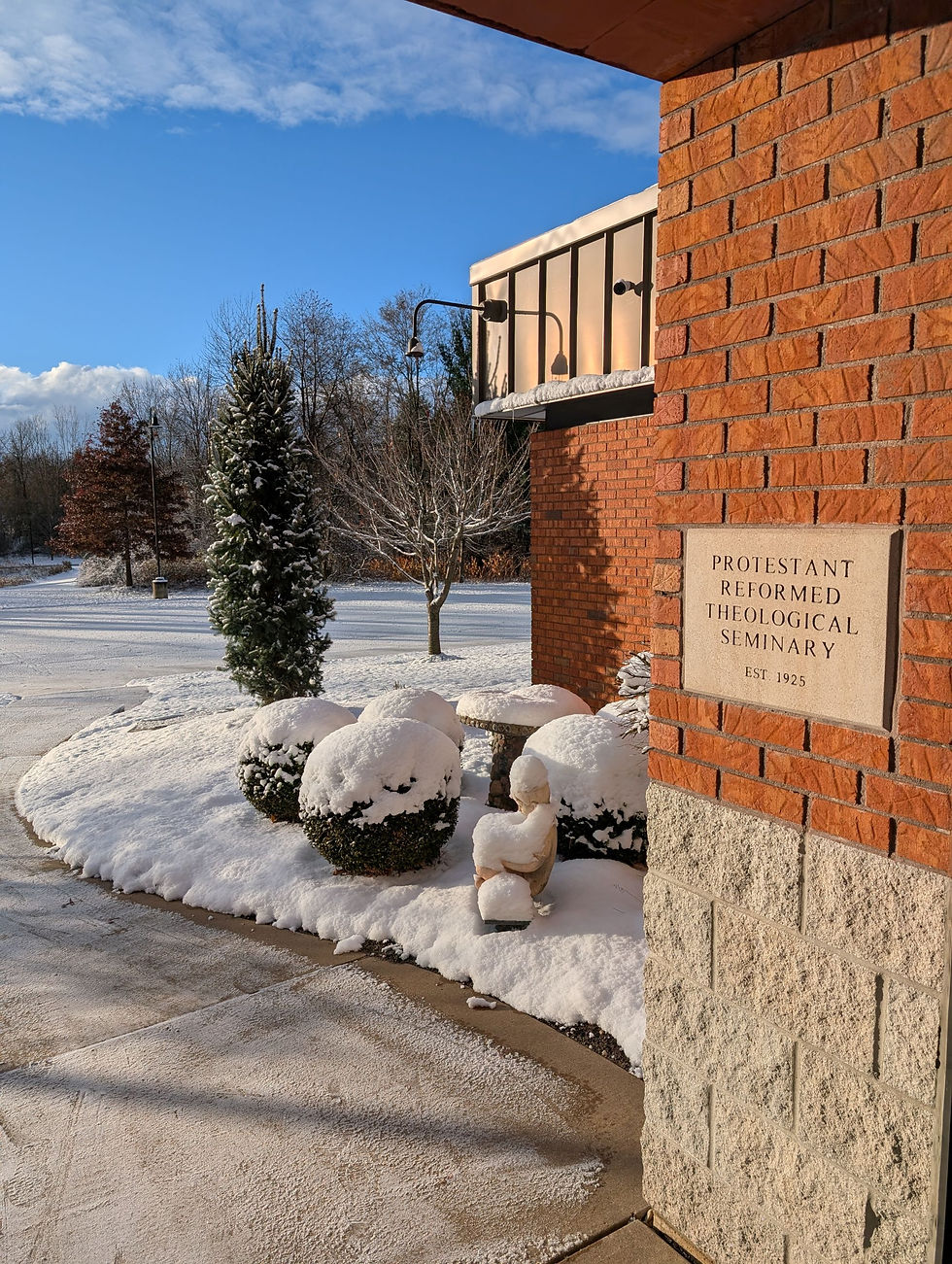A 17th-Century Arminian Compromise on the Nature of the Gospel Call?
- prcseminary1925
- Dec 14, 2023
- 3 min read

In the Fall 2023 issue of the Protestant Reformed Theological Journal, Prof. Cory Griess treats a significant history of doctrine matter involving the Reformed view of the call of the gospel, especially as it relates to the internal aspect. The title of his article is "Johannes Polyander and the Inefficacious Internal Call: An Arminian Compromise?" and in the quotation below he introduces the subject.
The subject is significant to Reformed churches and members, especially those who defend the free offer or well-meant offer of the gospel with its Arminian theology. You are encouraged to read the complete article at the link provided here.
"In the thirtieth disputation of the Leiden Synopsis (held in 1622), Johannes Polyander, professor of theology at the university, elucidated what he considers to be the reformed doctrine of vocatio. In his explanation of this important doctrine, Polyander makes surprising statements concerning the internal call. He teaches that not only the
external call, but also the internal call can come to the reprobate. It does not do so all the time, but it does so sometimes, especially in the sphere of the covenant. Yet, when it does, that internal call is ineffectual: “Nor does God always link the two ways of calling [external and internal] equally or in the same way, but the concurrence of both of
them is effective in some people and ineffective in others.” Polyander goes on to explain, “The ineffective concurrence of the two ways is observed in three kinds of people.” These three kinds of people are the three kinds of hearers who ultimately reject the word in the parable of the sower in Matthew 13. These “three-soil” hearers “hear” the word, and to some extent “receive” it, though they are never regenerated.
This is evidence, says Polyander, of an internal, ineffective calling.
"Polyander views this internal yet ineffective call as the work of the Holy Spirit: “The way of calling when we examine it from opposing perspectives, is divided into external and internal. The former is achieved outwardly through the administration of Word and sacraments, the latter inwardly through the working of the Holy Spirit.” The Holy Spirit is not involved only in the efficacious call to the elect, but He is involved in any internal call, efficacious or inefficacious.
In making this claim, Polyander has Hebrews 6:4–6 in view: “For it is impossible for those who were once enlightened, and have tasted of the heavenly gift, and were made partakers of the Holy Ghost, And have tasted the good word of God, and the powers of the world to come, If they shall fall away, to renew them again unto repentance; seeing they crucify to themselves the Son of God afresh, and put him to an open shame” (AV). As Polyander sees it, the three-soil hearers ho are not regenerated receive something of an internal call of the Holy Spirit in them, though this calling is ineffective.
"This doctrine of an ineffective internal call is not found in disputations in vocatio held by the Leiden faculty previous to the one held by Polyander in 1622 and recorded in the Leiden Synopsis.
...These facts raise the question, why the change in the doctrine of vocatio found in Polyander and the Leiden Synopsis? More specifically, why does this change occur only after the watershed decisions of the Synod of Dordt? The fact that the change does occur only after the Synod of Dordt indicates that the answer to the question must take
into account the rise and rejection of Arminianism (Remonstrantism). This leaves two most likely possibilities: (1) either Polyander is compromising with Arminianism by teaching an ineffectual internal call given to the reprobate, or (2) he is combating Arminianism by the same teaching."




Comments